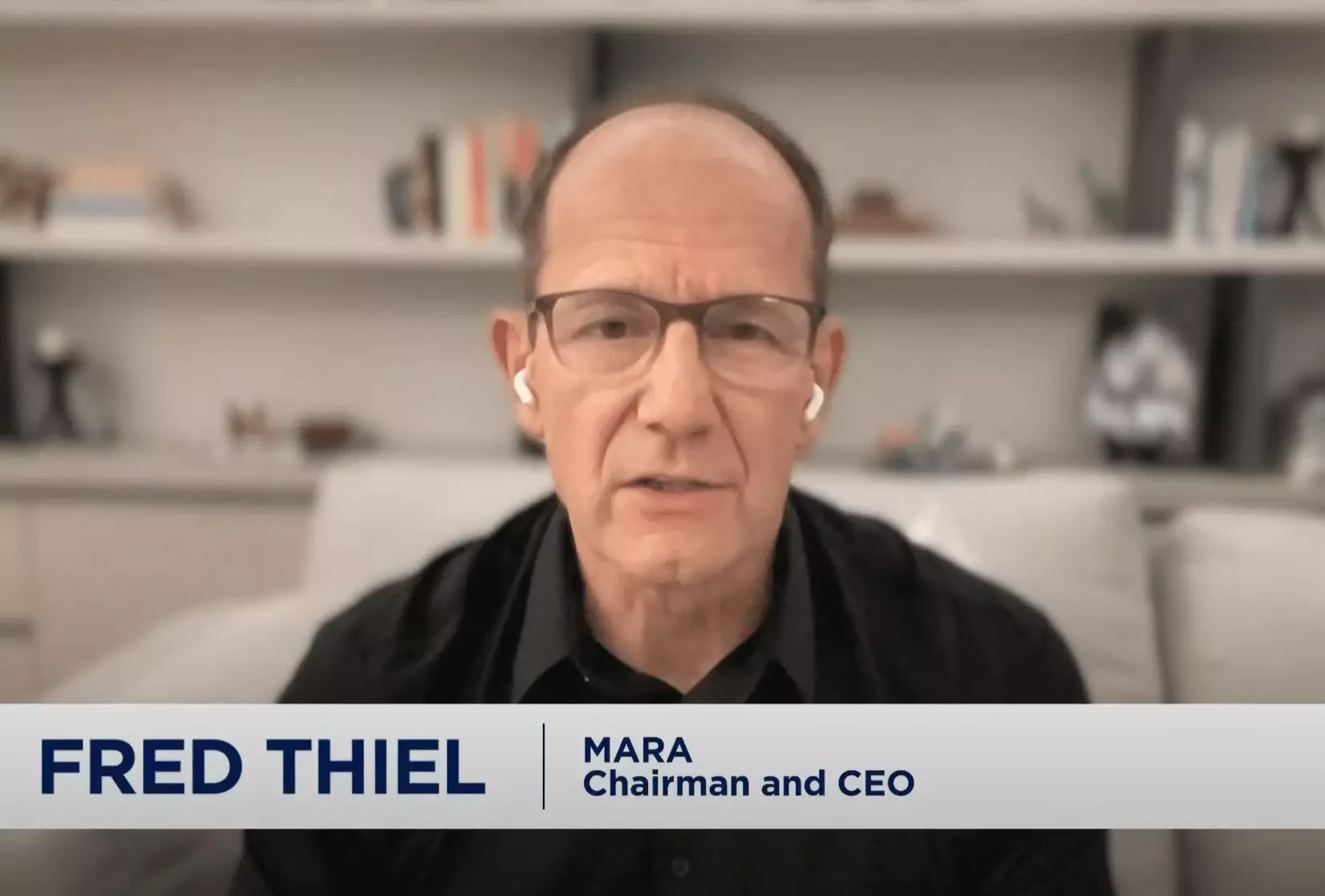In the ever-evolving world of cryptocurrency, Bitcoin remains a central figure that continuously attracts attention from both retail and institutional investors. Recent statements from Fred Thiel, CEO of Marathon Digital Holdings, underscore a compelling narrative surrounding Bitcoin’s potential. As we navigate through complex dynamics that encompass market trends, political influences, and institutional behaviors, it becomes essential to analyze Thiel’s perspectives to grasp the factors poised to impact Bitcoin’s future.
Thiel’s bullish perspective on Bitcoin can be mainly attributed to the growing institutional interest that is reshaping market dynamics. According to Thiel, the launch of spot exchange-traded funds (ETFs) earlier this year marks a significant turning point for Bitcoin adoption among institutional investors. He notes that while initial investments in these ETFs stemmed from retail investors, the landscape has gradually shifted as institutional entities, including pension funds, began to explore Bitcoin-related investments. This evolution signals a maturation of the cryptocurrency market, suggesting that Bitcoin is becoming a more accepted asset class among traditional investors.
Thiel’s observation is critical in understanding how institutional investment can influence Bitcoin’s price trajectory. This transition towards institutional ownership contributes to a more stable market environment. As more traditional financial players engage with Bitcoin, the volatility that has often characterized the cryptocurrency may start to diminish. With each new institutional investment, the pool of Bitcoin held becomes less susceptible to the whims of retail trading behavior, enhancing the asset’s stability.
Political developments also loom large in the discourse surrounding Bitcoin’s future. Thiel points out that a wave of pro-Bitcoin sentiment can emerge from election platforms—which could instigate a more favorable regulatory landscape in the United States. The notion that political figures might advocate for Bitcoin as a strategic reserve and support domestic mining offers a glimpse into a more acceptance-friendly environment for cryptocurrency. As regulatory clarity increases, it opens the door for broader participation and adoption of Bitcoin as a legitimate asset class.
The implications of such political support are monumental, as they may not only impact domestic sentiment but also compel other nations to consider similar stances. A global shift towards supportive regulations and adoption of Bitcoin would drastically change the cryptocurrency’s role in the global economy.
The Impact of Market Forces
Thiel also addresses the internal market dynamics at play, particularly the behavior of long-term Bitcoin holders. He suggests that while some long-term holders may decide to liquidate portions of their holdings to realize profits, the overall demand in the market remains robust, capable of absorbing selling pressures. The notion that every Bitcoin currently held is in profit illustrates the strong position of the asset, even as selling occurs. In essence, this confidence reinforces the idea that demand will continue to outpace supply.
As Thiel looks to the future, he believes that traditional measures of volatility might soon diminish. Specifically, he argues that the larger player base and increasing institutional interest could lead to more stability for Bitcoin prices, as significant drawdowns typical of previous years could become less frequent.
Thiel’s perspective gains weight when we consider the actions of major corporations in the Bitcoin space. Companies like MicroStrategy have engaged in aggressive acquisition strategies, evidenced by their significant bond issuance aimed at purchasing Bitcoin. Thiel cites Marathon’s own recent actions—including the completion of a $1 billion convertible note offering—as part of a broader trend. These capital market maneuvers underscore a concerted effort by both Marathon and other corporations to not only hold Bitcoin but also validate it as a strategic asset for balance sheets.
This trend is indicative of a larger movement where corporations increasingly view Bitcoin not just as an investment but as a means of financial resilience in an unpredictable economic environment.
In summation, Fred Thiel’s insights paint an optimistic picture for Bitcoin’s trajectory. The interplay of growing institutional investment, potential regulatory support, and corporate strategies converges to suggest a bright future for Bitcoin. With sustained demand, diminishing volatility, and increased political backing, Bitcoin may soon solidify its position as a key asset class in global finance. As indicated by analysts adjusting price targets for Marathon Digital, the bullish sentiment surrounding Bitcoin is not merely speculative but grounded in tangible market shifts. As we look ahead, the cryptocurrency space could witness an unprecedented transformation, reshaping our understanding of value and investment in the digital age.


Leave a Reply